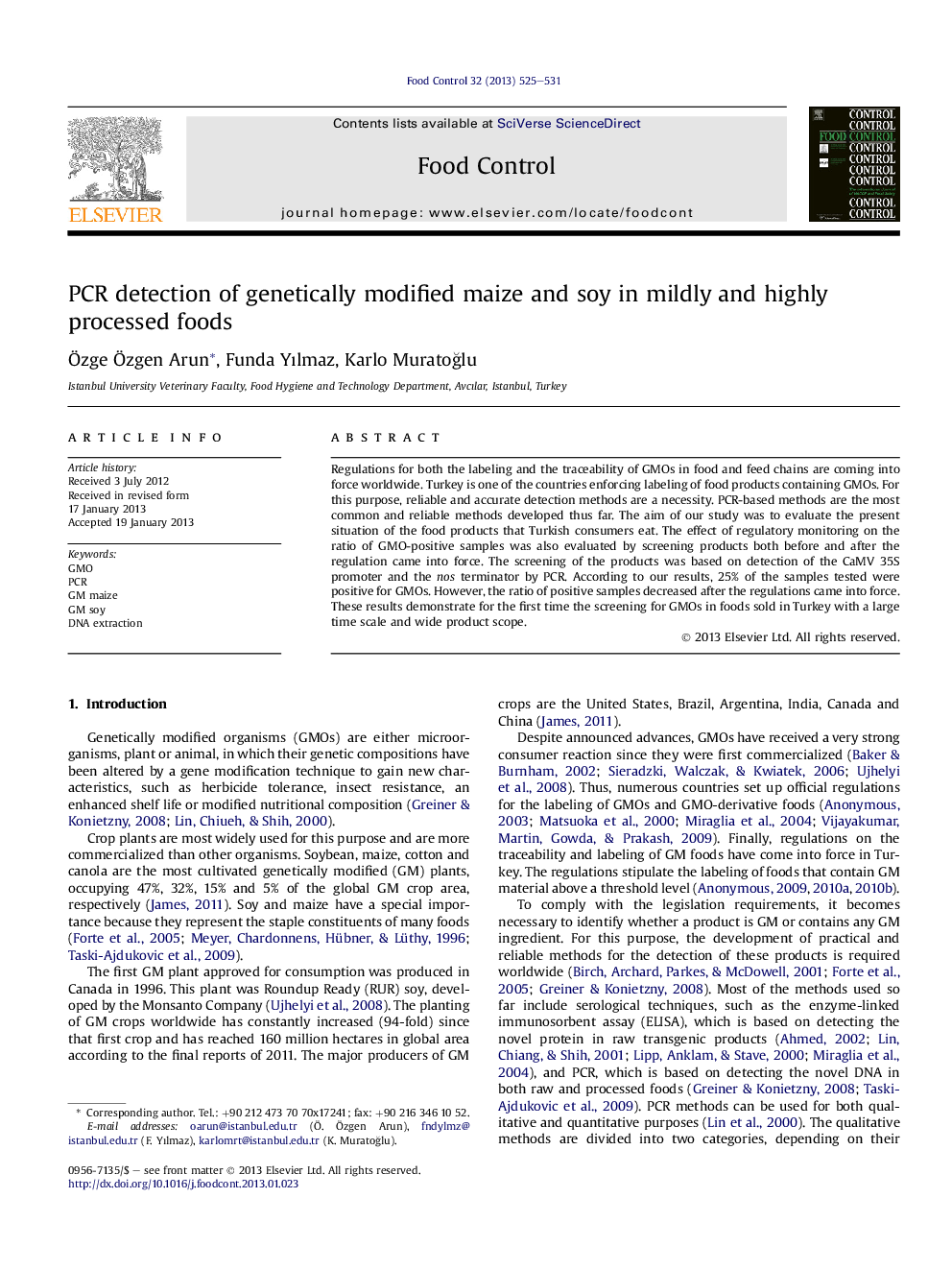| Article ID | Journal | Published Year | Pages | File Type |
|---|---|---|---|---|
| 4559398 | Food Control | 2013 | 7 Pages |
Regulations for both the labeling and the traceability of GMOs in food and feed chains are coming into force worldwide. Turkey is one of the countries enforcing labeling of food products containing GMOs. For this purpose, reliable and accurate detection methods are a necessity. PCR-based methods are the most common and reliable methods developed thus far. The aim of our study was to evaluate the present situation of the food products that Turkish consumers eat. The effect of regulatory monitoring on the ratio of GMO-positive samples was also evaluated by screening products both before and after the regulation came into force. The screening of the products was based on detection of the CaMV 35S promoter and the nos terminator by PCR. According to our results, 25% of the samples tested were positive for GMOs. However, the ratio of positive samples decreased after the regulations came into force. These results demonstrate for the first time the screening for GMOs in foods sold in Turkey with a large time scale and wide product scope.
► We detected GMOs in 25 of 100 food samples purchased from retail shops in Turkey. ► PCR is used for both novel and species-specific sequence detection. ► The level of processing has a large effect on DNA quality and detection. ► GM maize and soy are present in food products that Turkish consumers eat. ► Regulations on GMOs caused a decrease in the ratio of GM positive products.
